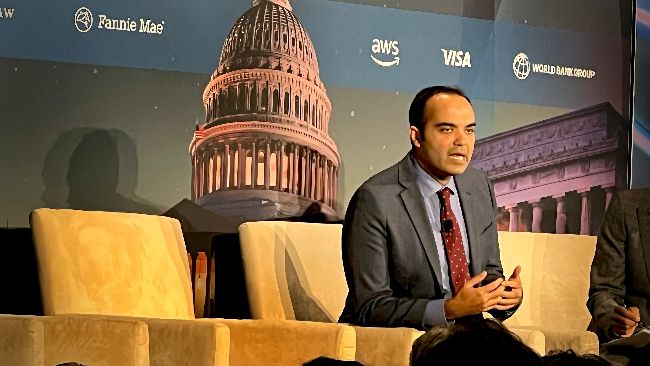Proposed Regulations Could Impact Stablecoin Issuers and Wallet Providers
As the transition of power approaches and Donald Trump prepares to take office, the U.S. Consumer Financial Protection Bureau (CFPB) has introduced new regulations that could have a significant impact on stablecoin issuers and wallet providers. However, the future of these proposals remains uncertain.
The CFPB recently initiated the process to open a proposal for public comment that would establish a framework for applying the Electronic Fund Transfer Act to virtual wallets and stablecoins. These digital tokens are linked to the value of a stable asset, typically the U.S. dollar. While this proposal has substantial implications for U.S. stablecoin companies and crypto wallet providers, it is still in the early stages, with the potential for a new CFPB chief appointed by the incoming Trump administration.
Potential Changes Under the Trump Administration
Unlike other regulatory agency heads, CFPB Director Rohit Chopra is unlikely to step down voluntarily. With the power to appoint a new director, President Trump could influence the direction of the CFPB’s policies. Historically, the CFPB has taken a more assertive stance compared to other regulators, leading to efforts by Republican lawmakers to limit its authority.
The Supreme Court’s ruling in 2020 affirmed the president’s ability to dismiss and replace the CFPB director at will. This decision paves the way for potential changes in regulatory oversight under the new administration.
Implications of the Proposed Regulations
If the proposed regulations were to be enacted, stablecoins would be classified as a payment mechanism under the law. This could also extend to other cryptocurrencies like bitcoin, categorizing them as “funds” subject to regulatory oversight. Virtual currency wallets used for retail transactions would fall under the definition of financial “accounts,” requiring consumer disclosures and protections against unauthorized transactions.
However, these regulations may clash with the decentralized nature of many crypto operations, such as those in decentralized finance (DeFi). The demands for consumer protections and disclosures could challenge the existing infrastructure of person-to-person platforms and self-hosted wallet technologies.
Reactions to the Proposed Regulations
Consumer advocacy group Better Markets welcomed the CFPB’s proposal, emphasizing the need to extend protections to non-bank digital payment mechanisms. This move aims to create a level playing field among different payment systems, including those used by crypto and video game companies.
On the other hand, critics like Jack Solowey from the Cato Institute argue that the CFPB’s rationale for these regulations overlooks key aspects like decentralized ledgers and self-hosted wallets. Bill Hughes of Consensys also expressed concerns about the potential implications of these regulations, calling for a more transparent and inclusive decision-making process.

